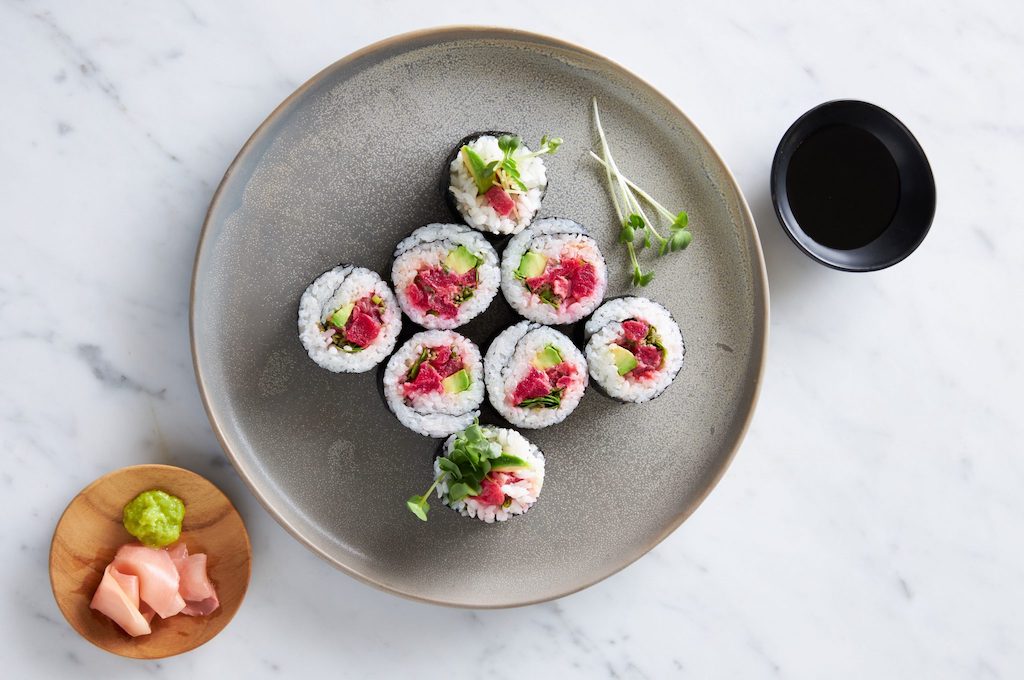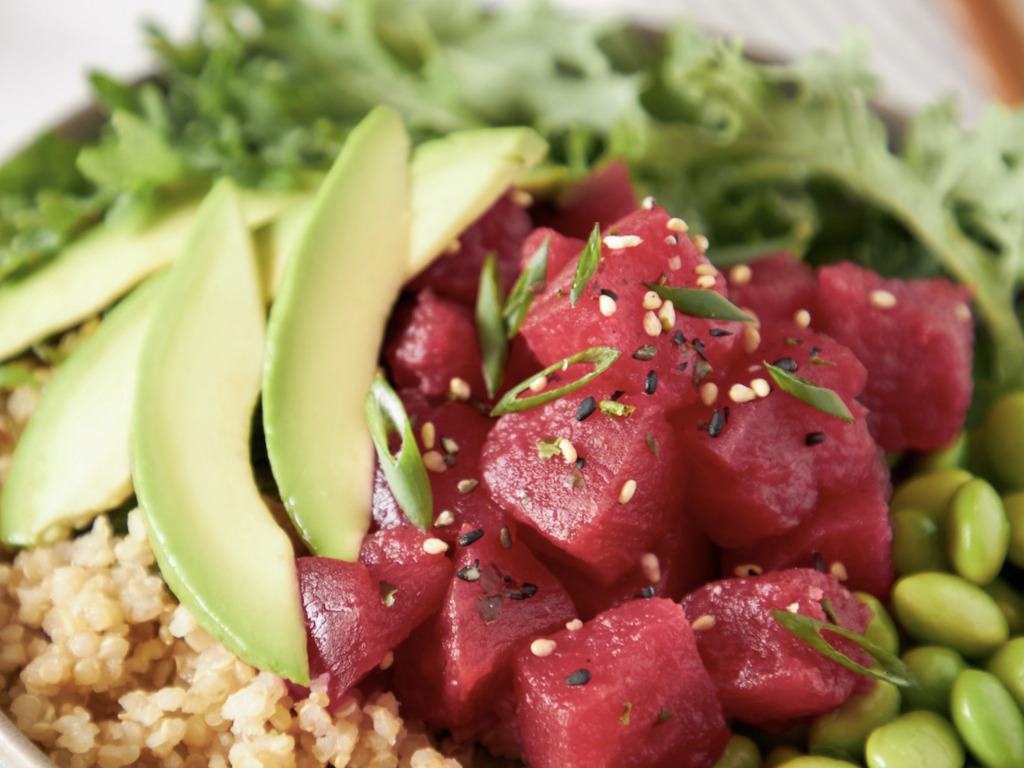4 Mins Read
Californian cell-cultured seafood startup Finless Foods has announced its expansion into the plant-based seafood category, debuting a new vegan tuna alternative as the “next step” in their company’s mission to protect the oceans. It comes as part of the food tech’s “brand refresh” to better reflect and communicate its impact goals with consumers.
Finless Foods announced on World Oceans Day (June 8) its first entry into the plant-based space with the addition of a new plant-based tuna offering to their portfolio of cell-cultured products. The startup is aiming to make their plant-based tuna “widely available” to consumers by as soon as 2022 through foodservice channels.
Made from nine plant-based ingredients in total, the vegan raw tuna alternative is designed for dishes such as poke and spicy tuna rolls, and was developed in partnership with chefs in order to replicate the taste, texture and mouthfeel of “top-grade sushi tuna”.
“We’ve developed a delicious, versatile product that makes an ideal plant-based substitute for raw tuna,” announced Finless Foods co-founder and CEO Michael Selden. “The feedback received from our culinary partners has been phenomenal, likening the flavour and texture to sushi-grade tuna.”
“Our plant-based tuna offers an option for consumers who can’t eat seafood because of allergies, who think about other health concerns, or who just want to enjoy a seafood dish without the catch,” Selden continued.

Finless Foods says tuna was chosen to be their focus for their plant-based and cell-cultured ventures in order to make the largest impact on ocean fish stocks. At present, global tuna populations have already declined by 60% compared to fifty years ago, and tuna simply “cannot be successfully farmed at scale” in a sustainable way.
Our plant-based tuna offers an option for consumers who can’t eat seafood because of allergies, who think about other health concerns, or who just want to enjoy a seafood dish without the catch.
Michael Selden, Co-Founder & CEO, Finless Foods
“Tuna play an important role in ocean health and have historically been a difficult species for aquaculture,” said Finless Foods co-founder Brian Wyrwas. “We felt that developing viable alternatives would yield the greatest net impact for our ocean.”
With seafood demand set to grow at unprecedented levels in the coming years, with nearly three-quarters of the demand arising from Asia-Pacific, offering consumers a broader range of alternatives is critical to alleviate the plethora of negative impacts associated with the global fishing industry.
Beyond overfishing, the industry drives greenhouse gas emissions, plastic pollution and is mired in human rights abuses – issues that have come under greater scrutiny amid the release of the recent Netflix documentary Seaspiracy, opening up huge business opportunities for food techs to tap into to fill the gap when it comes to the alternative seafood sector.

“The plant-based seafood industry is currently a white space and is expected to grow 28% annually over the next decade,” stated Finless Foods in a press announcement.
“Our plant-based venture is a natural broadening of our portfolio and company. We want to offer options that can help preserve the ocean’s biodiversity and health for years to come.”
Tuna play an important role in ocean health and have historically been a difficult species for aquaculture. We felt that developing viable alternatives would yield the greatest net impact for our ocean.
Brian Wyrwas, Co-Founder & CIO, Finless Foods
Existing players in the plant-based seafood sector include U.S. food techs Good Catch, New Wave Foods and the Plant-Based Seafood Co., Swedish startup Hooked and the latest to join is Hong Kong-based Green Monday’s OmniFoods, who released on the same day (June 8) its new OmniSeafood range of vegan fish fillets, crab cakes, salmon and tuna.
Finless Foods is clear that its cell-cultured seafood development is still firmly in play, and ongoing R&D will continue alongside its push towards regulatory approval for its cultured tuna product – a strategy not dissimilar to fellow San Francisco-based food tech Eat Just with both its iconic plant-based egg and its cultured chicken brand Good Meat.
“We plan to bring their full portfolio of plant-based and cell-cultured products to market in the coming years,” said the company.
All images courtesy of Finless Foods.




